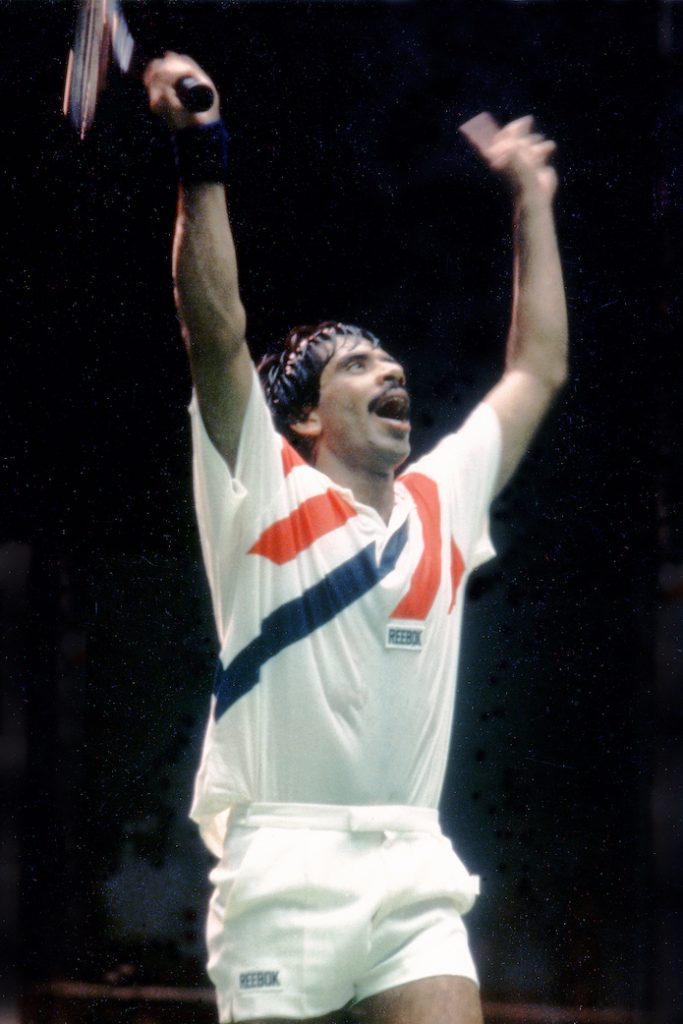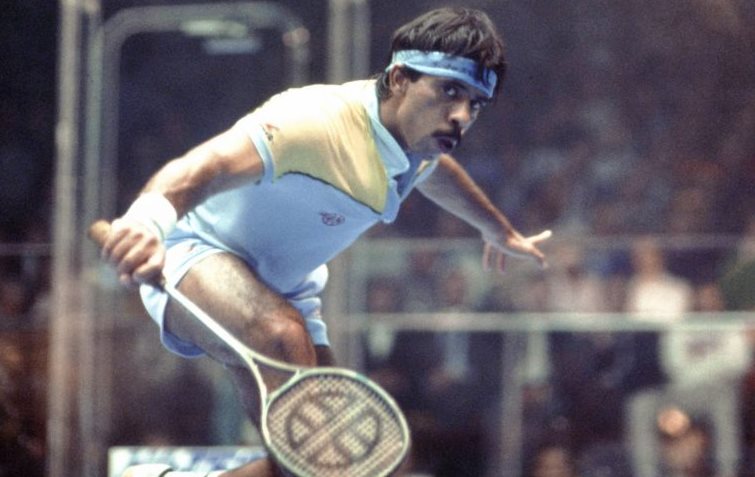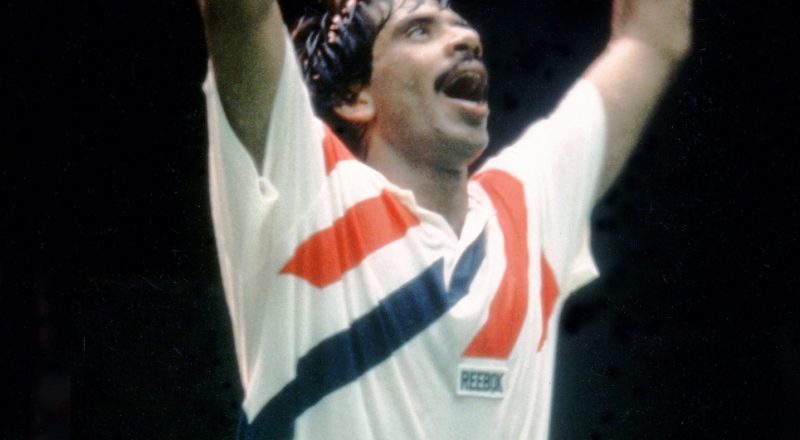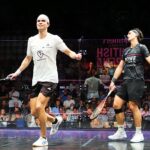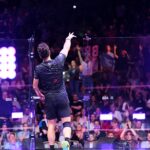Next week’s British Open has rekindled memories of a breakthrough season that was to launch the career of the tournament’s greatest ever men’s champion.
It was 40 years ago that Jahangir Khan, the man many squash fans consider to be the game’s G.O.A.T (Greatest player Of All Time) made the first of his record 11 British Open finals.
This run that saw the 17-year-old Khan bested by another of the sport’s greatest players, Geoff Hunt, in four brutal games, has also prompted the squash icon to draw parallels between his teenage right of passage and the potential for the divisive Mostafa Asal to emulate him.
Like Khan in ’81, when he beat Hunt in the main pre-British Open warm up event at the Chichester Open, Asal has bested the man many consider to be the favourite for the 2021 edition of the game’s oldest title, World No.1 Mohamed ElShorbagy, in the final of the CIB World Tour Finals.
Just like the great Khan in that now sepia dimmed 80s championship, the dawning of a new era and the heralding of a new champion appears tantalisingly close.
So, what does Khan think?
“From the point of view of young Mostafa, he has nothing to lose, he is still young and on his way up, like I was in ’81, and he has, like me, had a big win just before the British by claiming the World Tour Finals, so I see no reason he cannot come through very strongly at the British much like I did.
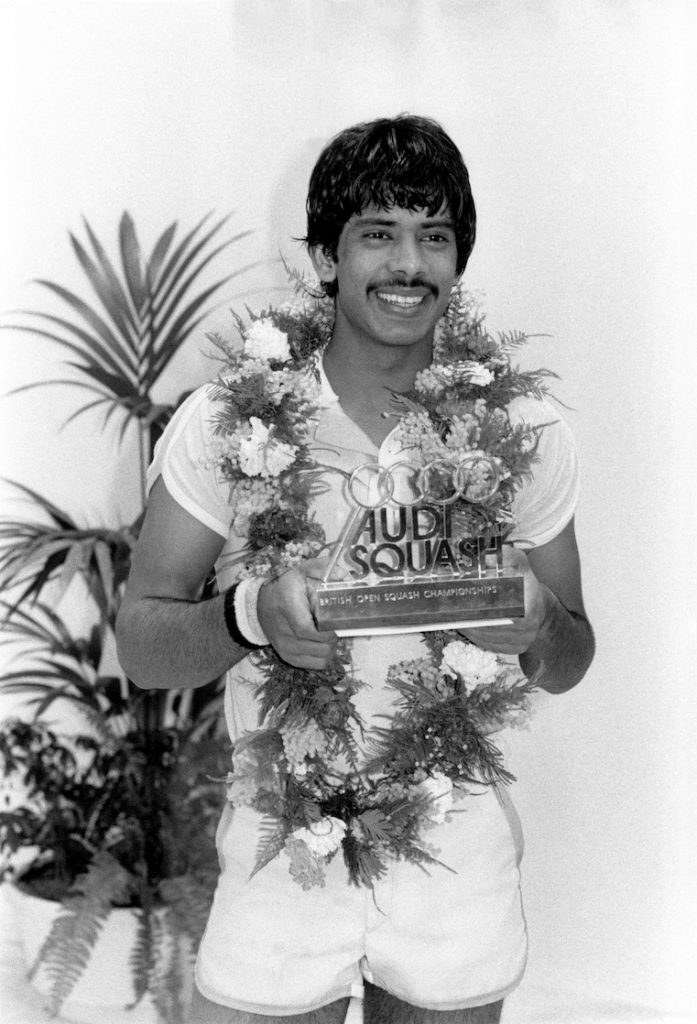
“Obviously the other side of that is that just like Geoff [Hunt] showed with me in our final, he made the very most of all his experience and when you look at the likes of Mohamed ElShorbagy, Ali Farag, who has of course just won his second World Championship, then these guys have a big advantage in terms of that experience.
“But when it comes to the British, they will be feeling pressure of a different type because they are expected to win and the pressure at the British is more intense and that means you must be more focused, and it is not easy.
“All I can say is that I have had both types of pressure to deal with, first the pressure of being the young guy coming through and then the pressure of being defending champion and favourite and neither are easy to deal with.
“So a big part of how things will go next week will be who handles their particular type of pressure the best.”
Recalling the year that promised to produce his first British Open yet fell agonisingly short, Khan is sanguine about the match and loss he rates as the greatest learning experience of his illustrious career.
The 10-time British Open champion said: “It’s hard to believe it was 40 years back, but six months before the ’81 British Open final I was starting to make my breakthrough. Really in 1980 I started to progress in the second-half of the season and I did a lot of training for six months.
“After finishing the British Open in 1980 with a third-round loss to Jonah [Barrington], I knew I had to plan my training ahead if I really wanted to make an impact and also for my brother. So, the next season I played the World Championship in 1980 where I lost to [Qamar] Zaman in a five-game quarter-final, and I was not seeded at the tournament, and I think my ranking was probably just inside the top 20.
“Then I won the New Zealand Open in October and then the Pakistan Open where I beat top guys like Zaman, Mohibullah [Khan[ and Hiddy Jahan, who were like No.2, No.3 and No.4 in the World Rankings. Then in the next January I won the British Under 23 Open by beating Ross Norman in the final.
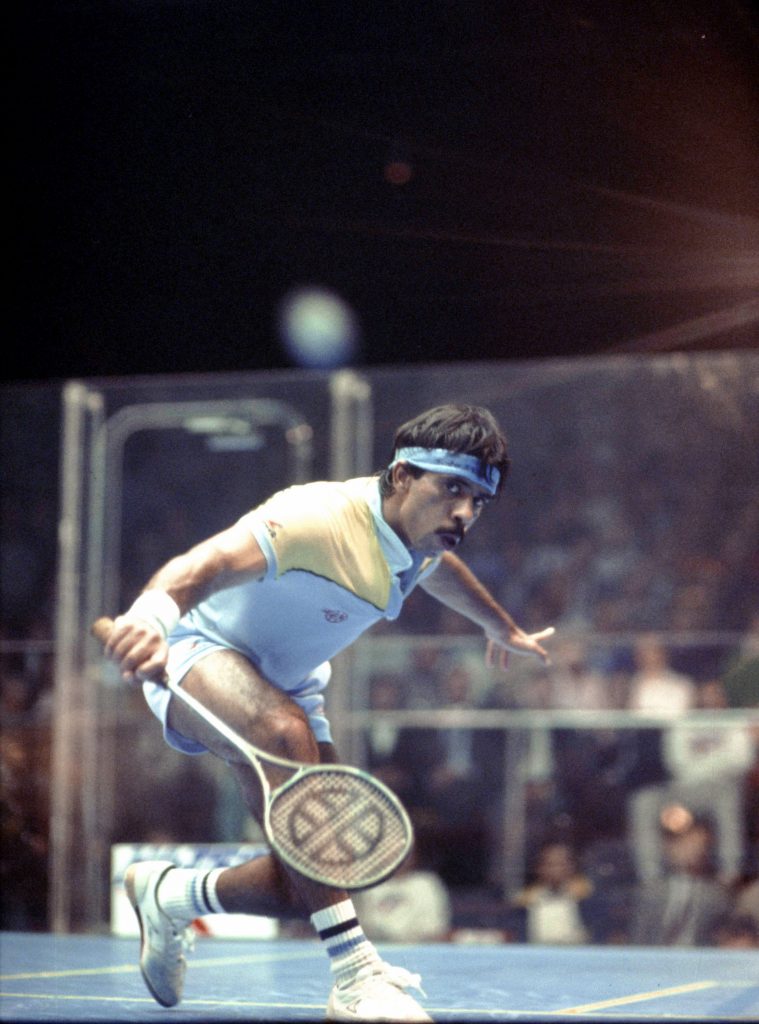
“So I had a great run and then before the British Open I faced Geoff Hunt for the first time in England, and I beat him for the first time and that was really a big win, but I had also won the Stockholm Open.
“Then the week before the British Open I faced Geoff again in the final of the Chichester Open, and I can say this was one of the most memorable victories of my career. It was so close and everyone was looking at that match as an indicator as to who would win the British Open, which was the following week.
“I beat Geoff in five games, 9-6 in the fifth, and I remember the match time was two hours and 11 minutes. But the British Open and the pressure that goes with it and the atmosphere that is surrounding it is completely different to the other tournaments.”
For the teenage Khan, as he prepared to go for glory, that difference was soon to make its presence felt: “When I arrived for the British, which was being held in Bromley in the town theatre, everyone expected that I would win, but Geoff was all very much there and I just lacked that little bit of experience for such a big event.
“I had never been to the final before. I was 2-1 down and 7-0 up in the fourth and I thought I had Geoff, but although his physical condition was deteriorating, I rushed things a little due to that lack of experience and my eagerness to get the biggest win of my life and that first British Open title, which meant so much to me and my family.
“Because of that I maybe deviated from my game plan, but Geoff was still very strong, and he fought back with everything he had. I learned more from that match than just about any other I ever played, and it stood me in good stead for the rest of my career to come.
As the most decorated British Open champion in the history of the men’s game, Khan was soon to become the hunted rather than the hunter and he gave his thoughts on the pressure facing World No.1 and defending champion Mohamed ElShorbagy and newly crowned world champion Ali Farag.
Khan said: “When you are World Champion or World No.1 then the pressure is always greater on you as everyone is looking at you and asking: ‘Can he do it again?’
“But I feel that the guys at the very top must handle that pressure and expectancy, and if they can’t handle it, they won’t be at the top for long, really you don’t get one without the other.
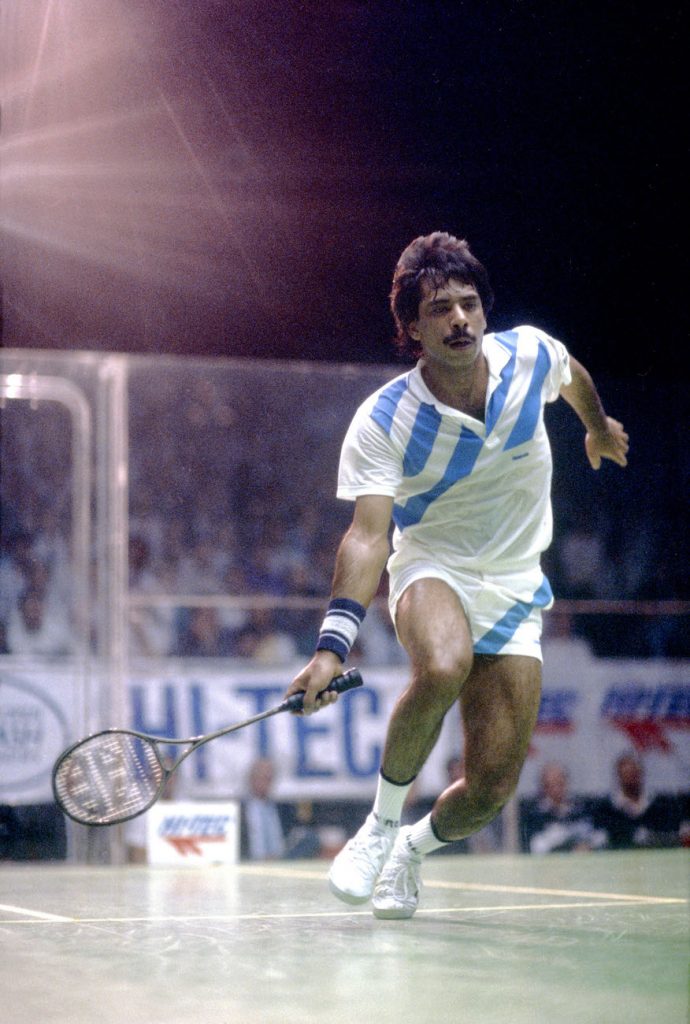
“If you look at Ali, he has come through and won his second world title, but he lost in the final of the last British Open to Mohamed and that will make him very hungry and determined this time around.
“So what you have got to do to block out all the extra pressure is just concentrate on who you are playing in each match in front of you and trust that you have done the work and the training and you are ready to face whatever challenge that comes your way.
“For me, No.1 or No.2, it doesn’t make much difference as the levels are very similar, people will look at past performances and matches and read into them how things may go at the British and if you look at the semi-final of the British, Tarek Momen played a great match against Ali [Farag], and it was really close.
“So it all depends on who gets it right on the day. Right now, Mohamed may have reclaimed the World No.1 ranking, while Ali beat him to become World Champion again. But next week at the British, they will have to find their best form all over again and who gets that right when it really matters most will be champion.
“Also, with the worlds being so close to the British, the top players have had a look at each other’s games and if they play in the British and it is the same four semi-finalists as the World Championships, that could make it very interesting.
“You look at the top three or four guys and they are going to be tough to get past, but what I would say is that how they start the tournament will be very important to all these guys.
Khan says that he rates the British Open above all others and believes the return of the 2021 event to the PSA World Tour schedule has been vital to the game’s own recovery from the onslaught of the COVID-19 pandemic.
Khan said: “The British was always the No.1 title for me. It is like winning an Olympic gold, being crowned Wimbledon champion, or winning the British Open in golf, it is the tournament with the most history behind it and the one which has been there the longest.
“In my career it was the title that mattered more than the rest and also more than being ranked No.1, it meant that much to me.”
